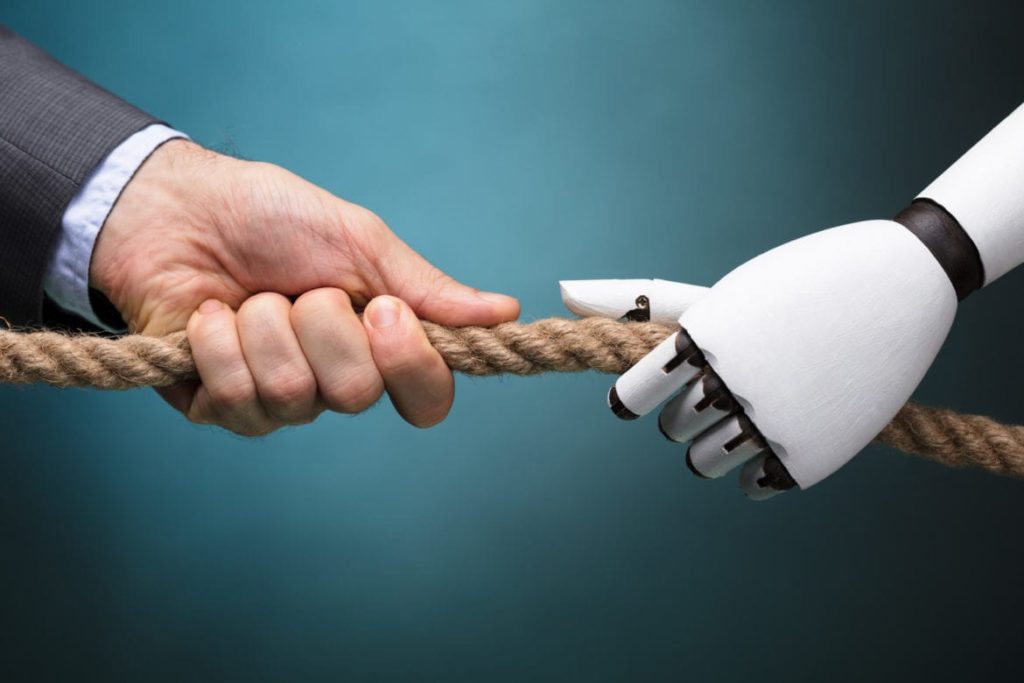
We know that our on-line privacy and autonomy (or freedom from outside control) are threatened in two, particularly alarming ways today. There are the undisclosed privacy invasions that occur from our on-line activities and the loss of opportunities where we can speak our minds without censorship.
These alarm bells ring because of the dominance of on-line social media platforms like Facebook, YouTube and Twitter and text-based exchanges like What’s App and the other instant messaging services—most of which barely existed a decade ago. With unprecedented speed, they’ve become the town squares of modern life where we meet, talk, shop, learn, voice opinions and engage politically. But as ubiquitous and essential as they’ve become, their costs to vital zones of personal privacy and autonomy have caused a significant backlash, and this past week we got an important preview of where this backlash is likely to take us.
Privacy advocates worry about the harmful consequences when personal data is extracted from users of these platforms and services. They say our own data is being used “against us” to influence what we buy (the targeted ads that we see and don’t see), manipulate our politics (increasing our emotional engagement by showing us increasingly polarizing content), and exert control over our social behavior (by enabling data-gathering agencies like the police, FBI or NSA). Privacy advocates are also offended that third parties are monetizing personal data “that belongs to us” in ways that we never agreed to, amounting to a kind of theft of our personal property by unauthorized strangers.
For their part, censorship opponents decry content monitors who can bar particular statements or even participation on dominant platforms altogether for arbitrary and biased reasons. When deprived of the full use of our most powerful channels of mass communication, they argue that their right to peaceably assemble is being eviscerated by what they experience as “a culture war” against them.
Both groups say they have a privacy right to be left alone and act autonomously on-line: to make choices and decisions for themselves without undue influence from outsiders; to be free from ceaseless monitoring, profiling and surveillance; to be able to speak their minds without the threat of “silencing;” and, “to gather” for any lawful purpose without harassment.
So how are these tugs-or-war over two of our most basic rights going?
This past week provided some important indications.

This week’s contest over on-line privacy pit tech giant Apple against rivals with business models that depend upon selling their users’ data to advertisers and other third parties—most prominently, Facebook and Google.
Apple announced this week that it would immediately start offering its leading smartphone users additional privacy protections. One relates to its dominant App Store and developers like Facebook, Google and the thousands of other companies that sell their apps (or platform interfaces) to iPhone users.
Going forward—on what Apple chief Tim Cook calls “a privacy nutrition label”—every app that the company offers for installation on its phones will need to share its data collection and privacy practices before purchase in ways that Apple will ensure “every user can understand and act on.” Instead of reading (and then ignoring) multiple pages of legalese, for the first time every new Twitter or YouTube user for example, will be able through their iPhones to either “opt-in” or refuse an app’s data collection practices after reading plain language that describes the personal data that will be collected and what will be done with it. In a similar vein, iPhone users will gain a second advantage over apps that have already been installed on their phones. With new App Tracking Transparency, iPhone users will be able to control how each app is gathering and sharing their personal data. For every application on your iPhone, you can now choose whether a Facebook or Google has access to your personal data or not.
While teeing up these new privacy initiatives at an industry conference this week, Apple chief Tim Cook was sharply critical of companies that take our personal data for profit, citing several of the real world consequences when they do so. I quote at length from his remarks last Thursday because I enjoyed hearing someone of Cook’s stature speaking to these issues so pointedly, and thought you might too:
A little more than two years ago…I spoke in Brussels about the emergence of a data-industrial complex… At that gathering we asked ourselves: “what kind of world do we want to live in?” Two years later, we should now take a hard look at how we’ve answered that question.
The fact is that an interconnected ecosystem of companies and data brokers, of purveyors of fake news and peddlers of division, of trackers and hucksters just looking to make a quick buck, is more present in our lives than it has ever been.
And it has never been so clear how it degrades our fundamental right to privacy first, and our social fabric by consequence.
As I’ve said before, ‘if we accept as normal and unavoidable that everything in our lives can be aggregated and sold, then we lose so much more than data. We lose the freedom to be human.’….
Together, we must send a universal, humanistic response to those who claim a right to users’ private information about what should not and will not be tolerated….
At Apple…, [w]e have worked to not only deepen our own core privacy principles, but to create ripples of positive change across the industry as a whole.
We’ve spoken out, time and again, for strong encryption without backdoors, recognizing that security is the foundation of privacy.
We’ve set new industry standards for data minimization, user control and on-device processing for everything from location data to your contacts and photos.
At the same time that we’ve led the way in features that keep you healthy and well, we’ve made sure that technologies like a blood-oxygen sensor and an ECG come with peace of mind that your health data stays yours.
And, last but not least, we are deploying powerful, new requirements to advance user privacy throughout the App Store ecosystem….
Technology does not need vast troves of personal data, stitched together across dozens of websites and apps, in order to succeed. Advertising existed and thrived for decades without it. And we’re here today because the path of least resistance is rarely the path of wisdom.
If a business is built on misleading users, on data exploitation, on choices that are no choices at all, then it does not deserve our praise. It deserves reform….
At a moment of rampant disinformation and conspiracy theories juiced by algorithms, we can no longer turn a blind eye to a theory of technology that says all engagement is good engagement — the longer the better — and all with the goal of collecting as much data as possible.
Too many are still asking the question, “how much can we get away with?,” when they need to be asking, “what are the consequences?” What are the consequences of prioritizing conspiracy theories and violent incitement simply because of their high rates of engagement? What are the consequences of not just tolerating, but rewarding content that undermines public trust in life-saving vaccinations? What are the consequences of seeing thousands of users join extremist groups, and then perpetuating an algorithm that recommends even more?….
[N]o one needs to trade away the rights of their users to deliver a great product.
With its new “data nutrition labels” and “app tracking transparency,” many (if not most) of Apple’s iPhone users are likely to reject other companies’ data collection and sharing practices once they understand the magnitude of what’s being taken from them. Moreover, these votes for greater data privacy could be a major financial blow to the companies extracting our data because Apple sold more smartphones globally than any other vendor in the last quarter of 2020, almost half of Americans use iPhones (45.3% of the market according to one analyst), more people access social media and messaging platforms from their phones than from other devices, and the personal data pipelines these data extracting companies rely upon could start constricting immediately.
In this tug-of-war between competing business models, the outcry this week was particularly fierce from Facebook, which one analyst predicts could start to take “a 7% revenue hit” (that’s real cash at $6 billion) as early as the second quarter of this year. (Facebook’s revenue take in 2020 was $86 billion, much of it from ad sales fueled by user data.) Mark Zuckerberg charged that Apple’s move tracks its competitive interests, saying its rival “has every incentive to use their dominant platform position to interfere with how our apps and other apps work,” among other things, a dig at on-going antitrust investigations involving Apple’s App Store. In a rare expression of solidarity with the little guy, Zuckerberg also argued that small businesses which access customers through Facebook would suffer disproportionately from Apple’s move because of their reliance on targeted advertising.
There’s no question that Apple was flaunting its righteousness on data privacy this week and that Facebook’s “ouches” were the most audible reactions. But there is also no question that a business model fueled by the extraction of personal data has finally been challenged by another dominant market player. In coming weeks and months we’ll find out how interested Apple users are about protecting their privacy on their iPhones and whether their eagerness prompts other tech companies to offer similar safeguards. We’ll get signals from how advertising dollars are being spent as the “underlying profile data” becomes more limited and less reliable. We may also begin to see the gradual evolution of an on-line public space that’s somewhat more respectful of our personal privacy and autonomy.
What’s clearer today is that tech users concerned about the privacy of their data and freedom from data-driven manipulation on-line can now limit at least some of the flow of that information to unwelcome strangers in ways that they never had at their disposal before.

All of us should be worried about censorship of our views by content moderators at private companies (whether in journalism or social media) and by governmental authorities that wish to stifle dissenting opinions. But many of the strongest voices behind regulating the tech giants’ penchant “to moderate content” today come from those who are convinced that press, media and social networking channels both limit access to and censor content from those who differ with “their liberal or progressive points of view.” Their opposition speaks not only to the extraordinary dominance of these tech giants in the public square today but also to the air of grievance that colors the political debates that we’ve been having there.
Particularly after President Trump’s removal from Facebook and Twitter earlier this month and the temporary shutdown of social media upstart Parler after Amazon cut off its cloud computing services, there has been a concerted drive to find new ways for individuals and groups to communicate with one another on-line in ways that cannot be censored or “de-platformed” altogether. Like the tug-of-war over personal data privacy, a new polarity over on-line censorship and the ways to get around it could fundamentally alter the character of our on-line public squares.
Instead of birthing a gaggle of new “Right-leaning” social media companies with managers who might still be tempted to interfere with irritating content, blockchain software technology is now being utilized to create what amount to “moderation-proof” communication networks.
To help with basic blockchain mechanics, this is how I described it here in 2018.
A blockchain is a web-based chain of connections, most often with no central monitor, regulator or editor. Its software applications enable every node in its web of connections to record data which can then be seen and reviewed by every other connection. It maintains its accuracy through this transparency. Everyone with access can see what every other connection has recorded in what amounts to a digital ledger…
Blockchain-based software can be launched by individuals, organizations or even governments. Software access can be limited to a closed network of participants or open to everyone. A blockchain is usually established to overcome the need for and cost of a “middleman” (like a bank) or some other impediment (like currency regulations, tariffs or burdensome bureaucracy). It promotes “the freer flow” of legal as well as illegal goods, services and information. Blockchain is already driving both modernization and globalization. Over the next several years, it will also have profound impacts on us as individuals.
If you’d gain from a visual description, this short video from The MIT Technology Review will also show you the basics about this software innovation.
I’ve written several times before about the promise of blockchain-driven systems. For example, Your Work is About to Change Forever (about a bit-coin-type financial future without banks or traditional currencies); Innovation Driving Values (how secure and transparent recording of property rights like land deeds can drive economic progress in the developing world); Blockchain Goes to Work (how this software can enable gig economy workers to monetize their work time in a global marketplace); Data Privacy & Accuracy During the Coronavirus (how a widely accessible global ledger that records accurate virus-related information can reduce misinformation); and, with some interesting echoes today, a 2017 post called Wish Fulfillment (about why a small social media platform called Steem-It was built on blockchain software).
Last Tuesday, the New York Times ran an article titled: They Found a Way to Limit Big Tech’s Power: Using the Design of Bitcoin. That “Design” in the title was blockchain software. The piece highlighted:
a growing movement by technologists, investors and everyday users to replace some of the internet’s basic building blocks in ways that would be harder for tech giants like Facebook or Google [or, indeed, anyone outside of these self-contained platforms] to control.
Among other things, the article described how those “old” internet building blocks would be replaced by blockchain-driven software, enabling social media platforms that would be the successors to the one that Steem-It built several years ago. However, while Steem-It wanted to provide a safe and reliable way to pay contributors for their social media content, in this instance the over-riding drive is “to make it much harder for any government or company to ban accounts or delete content.”
It’s both an intoxicating and a chilling possibility.
While the Times reporter hinted about the risks with ominous quotes and references to the creation of “a decentratlized web of hate,” it’s worth noting that nothing like it has materialized, yet. Also implied but never discussed was the urgency that many feel to avoid censorship of their minority viewpoints by people like Twitter’s Jack Dorsey or even the New York Times editors who effectively decide what to report on and what to ignore. So what’s the bottom line in this tech-enabled tug-of-war between political forces?
The public square that we occupy daily—for communication and commerce, family connection and dissent—a public square that the dominant social media platforms largely provide, cannot (and must not) be governed by @Jack, the sensibilities of mainstream media, or any group of esteemed private citizens like Facebook’s recently appointed Oversight Board. One of the most essential roles of government is to maintain safety and order in, and to set forth the rules of the road for, our public square. Because blockchain-enabled social networks will likely be claiming more of that public space in the near future—even as they strive to evade its common obligations through encryption and otherwise—government can and should enforce the rules for this brave new world.
Until now, our government has failed to confront either on-line censorship or its foreseeable consequences. Because our on-line public square has become (in a few short years) as essential to our way of life as our electricity or water, its social media and similar platforms should be licensed and regulated like those basic services, that is, like utilities—not only for our physical safety but also for the sake of our democratic institutions, which survived their most recent tests but may not survive their next ones if we fail to govern ourselves and our awesome technologies more responsibly.
In this second tug-of-war, we don’t have a moment to lose.
This post was adapted from my January 31, 2021 newsletter. Newsletters are delivered to subscribers’ in-boxes every Sunday morning. You can sign up by leaving your email address in the column to the right.





